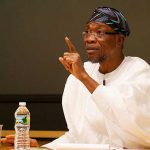Bangladesh’s Election Commission has announced that parliamentary elections will be held on January 7, following fatal rallies by opposition parties demanding the Prime Minister’s resignation.
The main opposition Bangladesh Nationalist Party (BNP), whose top leaders are either jailed or in exile, has already said it will boycott the polls if Prime Minister Sheikh Hasina does not resign and transfer power to a non-partisan caretaker government to oversee the general election.
Hasina has led Bangladesh for the past 15 years and has been accused of ruling with an iron fist. She is seen as almost certain to return to power for a fourth time if the opposition boycott goes ahead.
Hasina’s main rival and two-time Premier, BNP leader Khalid’s Zia, is effectively under house arrest for what her party calls trumped-up corruption charges.
The BNP boycotted elections in 2014 but ran in 2018. The main Islamist party in the Muslim-majority country, Jamaat-e-Islami, and the Islami Andolon Bangladesh (IAB) party both indicated they will boycott the elections.
Hasina has been accused of authoritarianism, human rights breaches, a crackdown on free expression, and dissent suppression while imprisoning her detractors.
Western countries are putting pressure on the administration to hold “free and fair” elections.












